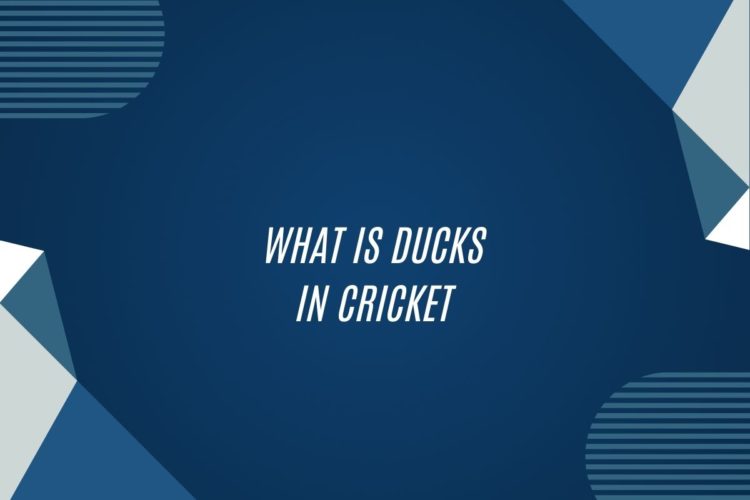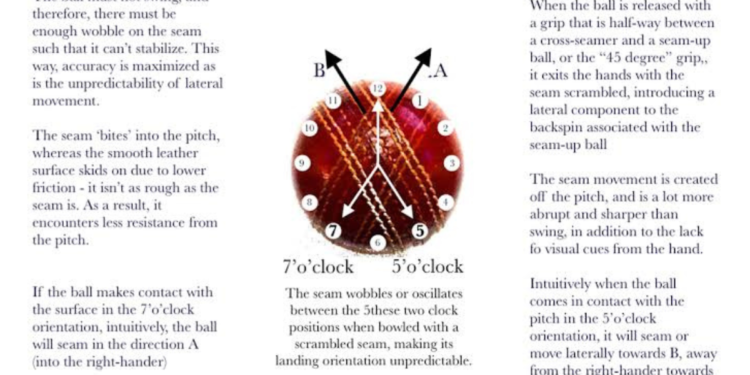Definition of a Duck
A duck in the realm of cricket refers to a score of zero by a batsman. When a player fails to register a run before being dismissed, they are said to be out for a duck. This term ‘duck’ is believed to have originated from the shape of the number zero, resembling the outline of a duck’s egg.
In cricket, getting out for a duck is a disappointing outcome for any batsman as it signifies an abrupt end to their innings without contributing any runs to the team’s total. Ducks come in various forms, such as the golden duck and silver duck, each carrying its own implications and impact on the game. The term ‘duck’ has become a widely recognized and used term in cricket circles, depicting an unsuccessful start or end to a player’s batting performance.
Origin of the Term Duck in Cricket
The term “duck” in cricket refers to a score of zero runs by a batsman in an innings. The origin of this quirky term has sparked much debate among cricket enthusiasts. One theory suggests that it may have originated from the shape of the number zero, resembling a duck’s egg.
Another popular theory traces the term back to the late 19th century, with the story of two English cricketers, Mr. Shaw and Mr. Drake. Mr. Shaw was dismissed without scoring on the field, and as a joke, his teammates nicknamed him “Duck,” referencing his score. The term caught on and became a widely recognized part of cricketing vocabulary, used to describe the unfortunate event of getting out without scoring.
Types of Ducks in Cricket
In cricket, a “duck” refers to a batsman getting out without scoring any runs. There are mainly two types of ducks in cricket: the Golden Duck and the Silver Duck. The Golden Duck occurs when a batsman is dismissed on the first ball of their team’s innings. It is considered an unfortunate start for both the player and the team.
On the other hand, a Silver Duck happens when a batsman is out without facing a ball, usually due to a run-out, stumping, or being caught off a wide or no-ball. In both cases, getting out for a duck is often seen as a setback for the batsman and a boost for the bowler and the fielding team. The term “duck” in cricket has become synonymous with a disappointing start or failure for a batsman, and it is a statistic that players usually try to avoid in their career.
Golden Duck Meaning in Cricket
In cricket, a player is said to be dismissed for a golden duck when they are out on the very first ball they face in their innings. This type of dismissal is considered quite unfortunate for the player, as they are unable to contribute any runs to their team’s total before being sent back to the pavilion. A golden duck occurs when a batter is caught, bowled, leg before wicket (LBW), stumped, or run out without scoring any runs off the first delivery they face.
Experiencing a golden duck can be frustrating for a player, as they are eager to make a positive impact on the game from the outset. It often serves as a blow to the player’s confidence and puts pressure on them to perform better in their next innings to make up for the early dismissal. Despite being a common occurrence in cricket, being dismissed for a golden duck remains an undesirable outcome for any player striving to make a significant contribution to their team’s success.
Silver Duck Meaning in Cricket
In the realm of cricket, a silver duck signifies a dismissal of a batsman on the second ball they face without scoring any runs. It is a term that reflects the brevity of a player’s innings, as they are swiftly sent back to the pavilion without making an impact on the scoreboard. The pressure to perform in a short span of time can often lead to players succumbing to this swift exit, adding to the suspense and drama of the game.
Experiencing a silver duck can be a challenging moment for any cricketer, as it highlights their vulnerability to early dismissals and the unpredictability of the sport. This form of dismissal can be disheartening for players and fans alike, as it showcases the swift and unforgiving nature of the game. Despite its negative connotations, a silver duck serves as a reminder of the importance of resilience and focus in the face of adversity on the cricket field.
























Купить Автомобиль с пробегом – только у нас вы найдете разные комплектации. Быстрей всего сделать заказ на авто бу можно только у нас!
[url=https://buauto1.ru]где можно купить бу авто[/url]
распродажа бу авто – [url=http://www.buauto1.ru]https://buauto1.ru[/url]
Купить Haval – только у нас вы найдете цены ниже рынка. Быстрей всего сделать заказ на хавал модельный ряд 2025 официальный сайт можно только у нас!
[url=https://havalkrd11.ru]машина хавал цена[/url]
купить новый haval – [url=https://havalkrd11.ru/]https://havalkrd11.ru[/url]
Купить Хавал – только у нас вы найдете разные комплектации. Быстрей всего сделать заказ на хавал про можно только у нас!
[url=https://havalpromsk11.ru]хавал про модели[/url]
хавал про москва – [url=http://havalpromsk11.ru/]https://havalpromsk11.ru[/url]
Заказать Хавал – только у нас вы найдете разные комплектации. Быстрей всего сделать заказ на хавал цена можно только у нас!
[url=https://havalmsk1.ru]хавейл официальный дилер[/url]
хавейл 2025 – [url=https://havalmsk1.ru/]http://www.havalmsk1.ru/[/url]
Купить Хавал – только у нас вы найдете цены ниже рынка. Быстрей всего сделать заказ на haval официальный дилер можно только у нас!
[url=https://havalmsk1.ru]сколько стоит haval[/url]
дилер haval в москве – [url=http://www.havalmsk1.ru/]http://www.havalmsk1.ru/[/url]
Заказать Хавал – только у нас вы найдете разные комплектации. Быстрей всего сделать заказ на дилер хавал в москве можно только у нас!
[url=https://havalmsk1.ru]купить хавал новый у официального дилера[/url]
купить новый haval – [url=http://havalmsk1.ru]http://havalmsk1.ru/[/url]
Купить Хавал – только у нас вы найдете цены ниже рынка. Быстрей всего сделать заказ на купить хавал москва у официального дилера можно только у нас!
[url=https://havalmsk1.ru]автосалон хавал в москве[/url]
haval купить новый у официального дилера – [url=http://havalmsk1.ru/]https://havalmsk1.ru[/url]
Заказать Хавейл – только у нас вы найдете разные комплектации. Быстрей всего сделать заказ на автомобили haval 2025 года можно только у нас!
[url=https://havalmsk1.ru]haval оф дилер[/url]
купить новый haval – [url=https://havalmsk1.ru/]https://havalmsk1.ru[/url]
Заказать Haval – только у нас вы найдете цены ниже рынка. Быстрей всего сделать заказ на haval официальный дилер в москве можно только у нас!
[url=https://havalmsk1.ru]купить хавал[/url]
авто haval цена – [url=http://havalmsk1.ru/]http://www.havalmsk1.ru/[/url]
Купить Хавейл – только у нас вы найдете цены ниже рынка. Быстрей всего сделать заказ на haval москва официальный дилер можно только у нас!
[url=https://havalmsk1.ru]купить новый хавал в москве[/url]
купить хавал 2025 года – [url=http://www.havalmsk1.ru]http://havalmsk1.ru/[/url]
Заказать Хавал – только у нас вы найдете разные комплектации. Быстрей всего сделать заказ на купить хавал 2025 года можно только у нас!
[url=https://havalmsk1.ru]хавал автосалон[/url]
хавейл – [url=http://www.havalmsk1.ru]http://havalmsk1.ru[/url]
Заказать Haval – только у нас вы найдете разные комплектации. Быстрей всего сделать заказ на хавал можно только у нас!
[url=https://havalmsk1.ru]официальный хавал[/url]
haval москва – [url=http://havalmsk1.ru]https://www.havalmsk1.ru/[/url]
танк 300 цена в спб [url=https://www.tank-3001.ru]http://tank-3001.ru[/url]
продажа танк 300 в спб [url=https://tank-3001.ru/]http://tank-3001.ru[/url]